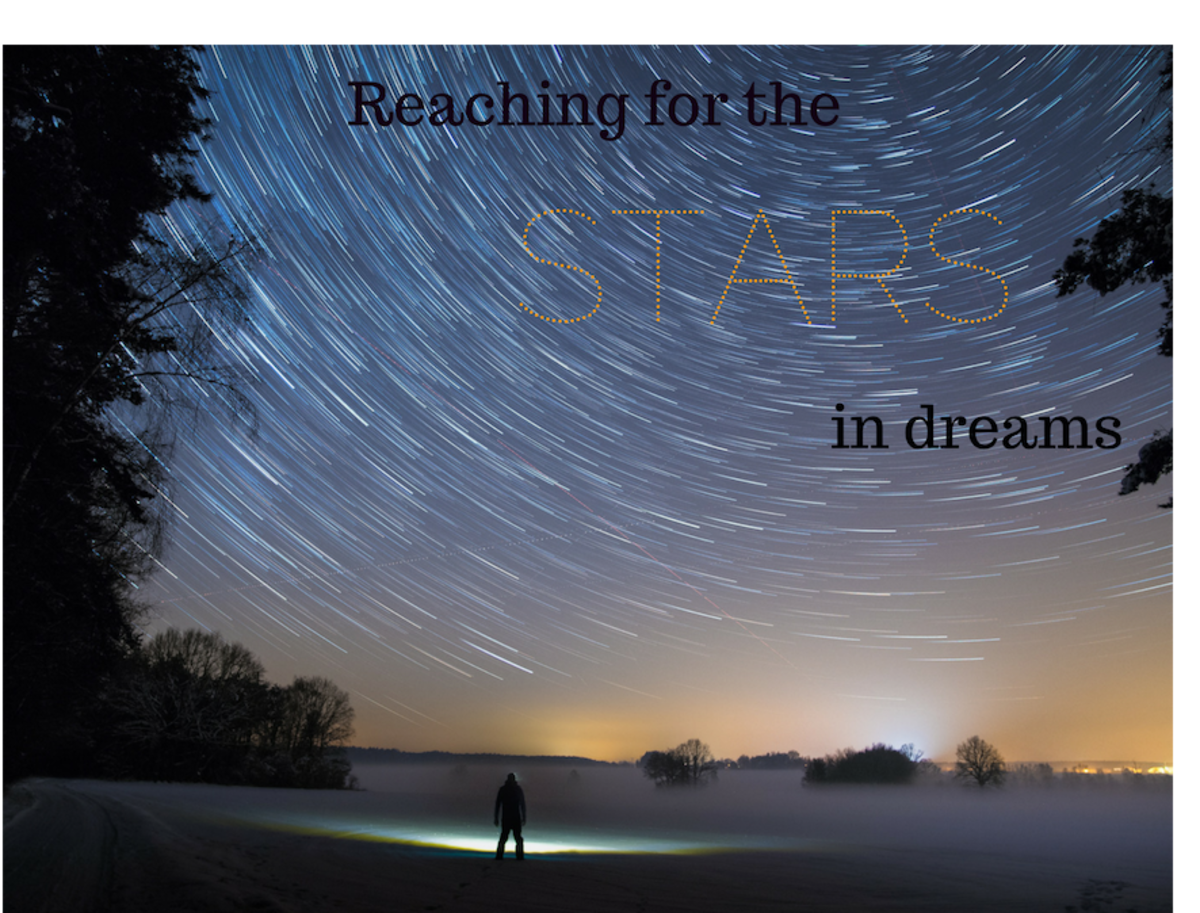Dreams - Why They Occur, What They Mean, and How to Remember Them
What Really is a Dream?

The Science Behind Dreams is a fascinating book about why we dream what we dream. I learned a lot about myself while reading this and I think you will too!
Defining a Dream
Dreams are involuntary thoughts that occur in succession, typically while sleeping - however people can also dream while they are awake. Dreams are how the mind, body and spirit communicate with each other in a symbolic state of being.
Our concsious mind (also known as our thinking mind) only takes up a tiny part of our brain. The large, and mainly undiscovered frontier of the brain is the part that controls our imagination.
Dreams are controlled by the unconcsious and are believed to reveal things about our lives, our purpose, our relationships and more. What happens when we are not dreaming is what defines what happens when do dream.
Dream Poll
Do you remember your dreams?
Explaining Why We Dream
Dreaming is the way our unconcsious self attempts to communicate with our concsious self using symolic imagery representing important aspects of ourselves, and our lives.
The subconscious mind that creates dreams sends messages via symbols and imagery, which in turn convey ideas or situations in a visual language.
Experts are divided between why we dream. Some experts say that dreams help us relax and rejuvinate our bodies during sleep. Other experts believe that dreams hold powerful meanings.
Famous psychologist Carl Jung taught that dreams were reflections of underdeveloped parts of a person's personality, and that dreams were compensation for actions performed while the person is awake.
Psychiatry professor Ernest Hartmann, M.D. has theorized that our dreams are reflections of our inner most feelings. This theory is based around the idea that our dreams serve the purpose of coping mechanisms for our unconcsious.
Psychologist Sigmund Freud believed that dreams were powerful tools - reflections of our deepest desires and wishes. Freud suggests that when we dream, we release emotions that we suppress while we are awake.
Some psychologists believe that dreams are our unconcsious mind's way of resolving conflict, stress and problematic situations in our real life. This is why people often here the phrase "sleep on it" when dealing with large problems or obstacles.
Why Do We Dream?

A List of Universal Themes for Dreams
Some dreams are easily identifiable, while other dreams are strange, vague and hard to decipher.
Despite the elusiveness of our unconscious minds, psychologists have been able to come up with fifteen universal themes for dreams, and they are:
- Flying
- Failing an exam or winding up in class right before an exam starts and you are completely unprepared
- Being naked in public
- Becoming paralyzed, or stuck in time
- Falling
- Running late for something important
- Losing some or all of your teeth
- Being rejected
- Being hit by a natural disaster, such as a tornado, a tsunami or a hurricane
- Driving or crashing a car
- Being chased by someone
- Being rejected or abandoned
- Finding money or losing money
- Going back to your childhood
- Being with people from the past, particularly people who have passed away
Although these have been identified as universal themes, psychologists say that if one theme in particular occurs over and over again, it takes on a whole new meaning.
What Do Your Dreams Mean?

Tips for Remembering Your Dreams
Some people have the ability to wake up with a vivid, crystal clear recollection of their dreams, others believe they don't dream at all. But scientists agree that we all dream, where they tend to disagree is how to interpret these dreams.
If you are one of those people who can't ever recall your dreams, it can be close to impossible to try to interpret these dreams. But dreams can hold secrets our unconcsious wants us to discover, or realize emotions we are refusing to face.
Remembering your dreams can potentially help you along the journey called life.
Here are five ways to help you stop dream amnesia and remember your dreams:
- Studies show that the more observent a person is, the more vividly the person dreams. Although some people are naturally born more observant than others, you can train yourself to become more observant by carrying a tiny notebook with you as often as possible, and jotting down small things that you notice.
- Journal when you first wake up, every morning. Whether you remember the dream or not, just begin writing. Studies show that free form writing is the best way to tap into the unconcsious, which means that this style of writing may help you recall your dreams.
- Meditating is a fantastic way to tap into the unconcsious mind, as is yoga. Research shows that people who engage in these types of activities are more likely to recall their dreams that people who live hectic, busy lives and don't make time for themselves.
- Get a good nights rest! This may sound silly, or just plain obvious, but some people don't realize that if they don't get a decent night's sleep, they will rarely remember their dreams. Vivid dreams most often occur when we enter REM sleep, one of the deepest stages of sleep and the stage that those who are sleep deprived most often miss the most. You should be getting around 7-8 hours of quality sleep each night.
- Not only does the amount of time you sleep matter, but the position you sleep in matters as well. If you toss and turn all night, you will get restless sleep, leading to an inability to recall your dreams. Tossing and turning is actually a result of falling asleep in a poor position. Typically, the position in which you wake is the position you should go to sleep in order to promote restful sleep, and vivid dreams.
Do Dreams Serve a Purpose?

Learning How to Interpret Your Dreams
Now that you have learned how to recall your dreams, you are left with the decision of how to interpret your dreams. Unfortunately, because dreams are so mysterious, there is no one sure fire way to interpret them.
Some people choose to interpret them with dream dictionaries, which outline common dreams and theories of how to interpret those dreams. Some people choose to use energy healers and other spiritual workers to help them analyze their dreams. Others choose to ignore their dreams completely.
Those who ignore their dreams are often those who believe that dreams are only physiological stimulations. Those who choose to interpret their dreams believe that dreams are necessary psychologically.
There are many online tools you can use to help decipher your dreams, but there is no scientific way yet to know which method is right, if any are. For those who are interested, here are some helpful tools for dream interpretation:
- Dream Moods - Online Source for Dream Interpretations
- The Dream Bible - Online Guide to Dream Interpretation
- Spirit Community - How to Interpret Your Dreams
What are Lucid Dreams?
Those who have either been gifted with the ability to experience lucid dreams, as well as those who gain the ability to experience lucid dreams are often highly spiritual individuals.
A lucid dream occurs when the person dreaming is aware that they are inside of a dream. It is believed that lucid dreamers have the ability to manipulate their dreams, and interact with the people and situations they encounter in the dream world.
Lucid dreams are not the same as false awakenings - when a person is dreaming that they are sleeping, and dreams that they wake up, but remain in the unconcsious.
What are Day Dreams?
Day dreams are a bit of a mystery to psychologists and there is no one definition set in stone to describe this phenomena.
However day dreams are believed to be a dissassociative state while we are awake in which we escape into the dream world for a short period of time.
Some people experience very vivid day dreams while other people experience mild day dreams. Psychologists are unsure whether or not both qualify as true dreams, but most agree that the more vivid the daydream, the more power the dream holds.






